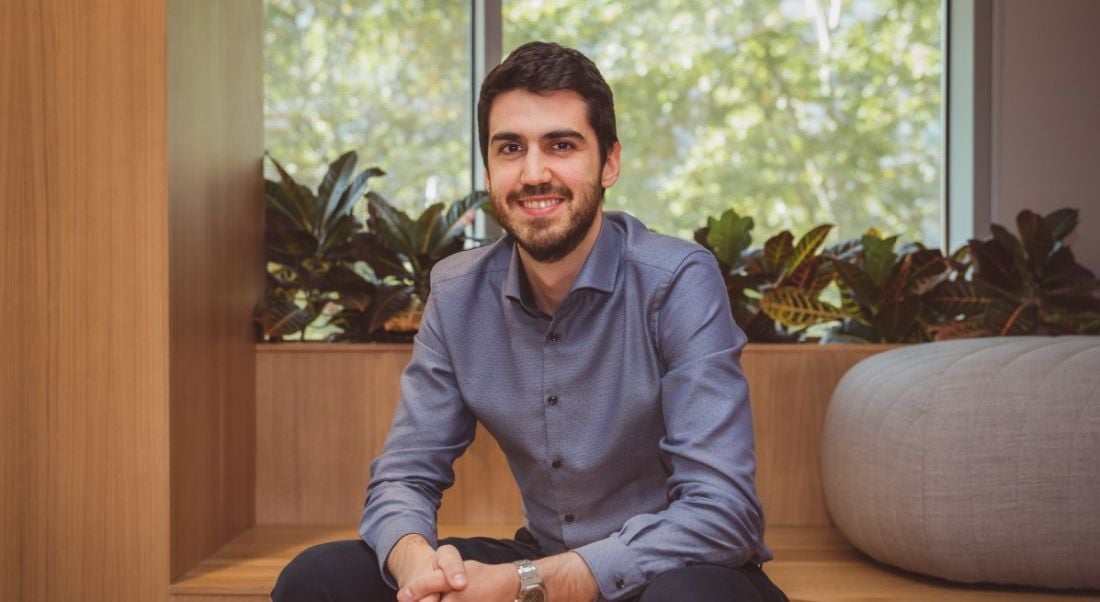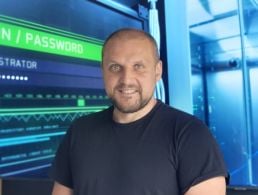Javier Biosca, digital marketing, Viasat Europe, discusses his time with the company so far and the important skills for his job.
Javier Biosca has spent five years working at Viasat, having joined the company’s Switzerland base in 2015 as an antenna engineer.
Now leading the digital marketing activities for Viasat’s EU Residential business, he enjoys the engaging and challenging nature of his job and the different skills he has picked up along the way.
‘I was pleased to find out how useful my engineering education and experience turned out to be when I transitioned to more a business-focused role’
– JAVIER BIOSCA
What is your role within Viasat?
I have occupied different roles in my five-year stint with Viasat. I originally joined Viasat in our Lausanne, Switzerland, office as an antenna engineer, just after graduating in 2015. I designed, built and tested satcom antenna systems for my first two years at Viasat.
I was then given the opportunity to join the EU residential broadband services team in preparation for the launch of Viasat’s next constellation of satellites. I’ve held a hybrid role for the last couple of years, focused on researching the European market and identifying and engaging with potential partners, while also leading our digital acquisition marketing efforts in Europe.
If there is such a thing, can you describe a typical day in the job?
It’s really a very exciting time to be part of the Viasat growth story in Europe. Demand for our services is growing in both our existing and emerging markets, which means a ‘typical day’ doesn’t really exist, and that’s how I like it.
Interestingly, as we continue to grow the team to capitalise on the opportunities for Viasat in Europe, interviewing candidates and potential colleagues has become one of the few predictable moments of my week.
What types of project do you work on?
We are in the middle of the expansion of our European residential service, so the projects I work on fall within the market development sphere.
I’m very involved in market research and validation, as well as go-to-market and growth initiatives. All the exciting stuff.
What skills do you use on a daily basis?
I would say that an analytical approach to market research is key to extracting meaningful information and not drowning in the swathes of available data. The satellite broadband industry (and the underlying technology) is inherently a complex one and, therefore, success for me and my colleagues is about contextualising this data.
It’s about extracting the value in the data and communicating it in a way that helps us make informed and data-driven decisions. The skill is about articulating, to a diverse number of stakeholders, the real nuggets of intelligence and insights within a mountain of data.
Running a pan-European operation also means interacting with people from many different nationalities and languages. We must adapt the way we communicate with our customers and partners. I wouldn’t use the same English when I am meeting with a European marketing agency as I would with my Carlsbad colleagues.
What is the hardest part of your working day?
I would say the most challenging part, which at the same time definitely adds some spice to my day-to-day, is the flexibility required to wear different hats and contribute on several fronts throughout the day. All this while adapting to different cultures and different ways of interacting with our partners in each market.
With a small but growing team, there’s a lot of learning on the job, which is always welcome, even though it can be a little stressful at times.
Do you have any productivity tips that help you through the working day?
Nothing like a good night’s sleep and working out before going to the office. But also, on particularly busy days, I try to vary my routine. Sometimes I find a quiet corner so I can work uninterrupted, other times I’ll work from a beanbag or a bar stool in the cafeteria.
It’s important to mix it up a bit and step away from your desk, change your environment and put yourself in a different mindset.
When you first started this job, what were you most surprised to learn was important in the role?
I was pleased to find out how useful my engineering education and experience turned out to be when I transitioned to more a business-focused role. Whether it’s explaining the practical implications of propagation loss, spectrum allocation or antenna radiation patterns to sales agents, installers or authorities, having a firm grasp on the underlying physics certainly helps to make more accurate and compelling arguments.
Viasat is historically an engineering-led company but is increasingly incorporating design thinking and CX into its modus operandi. Yet, I’ve been pleasantly surprised with how technology has been my gateway into conversations with marketing, customer experience and implementation teams, for example.
What do you enjoy most about the job?
Definitely the trust and support that I have received since the day I joined the company. I can think of very few companies where a young professional would be asked to write a research paper and present it at the Davos Congress Centre or respond to the UK’s Universal Service Obligation consultation and present to the DCMS [Department for Digital, Culture, Media and Sport] in Whitehall after only a few months in the job.
This level of autonomy from so early on is only possible thanks to a great supporting cast. When I was writing my research paper, it certainly helped that almost everyone on my floor had at least a PhD in electromagnetics, or that I was able to use one of our vice-presidents as a sounding board when I was crafting our response to the DCMS.




